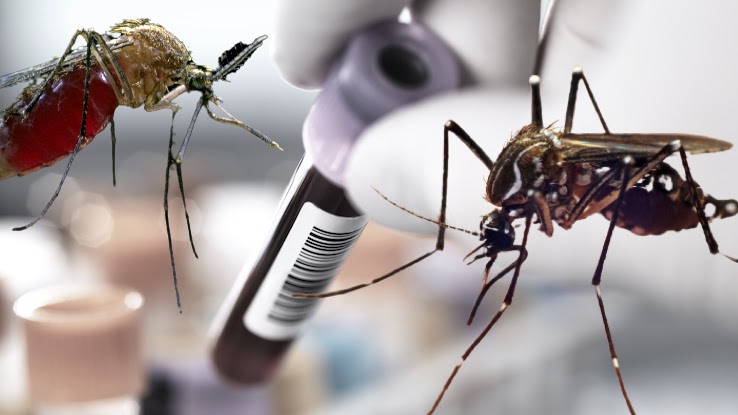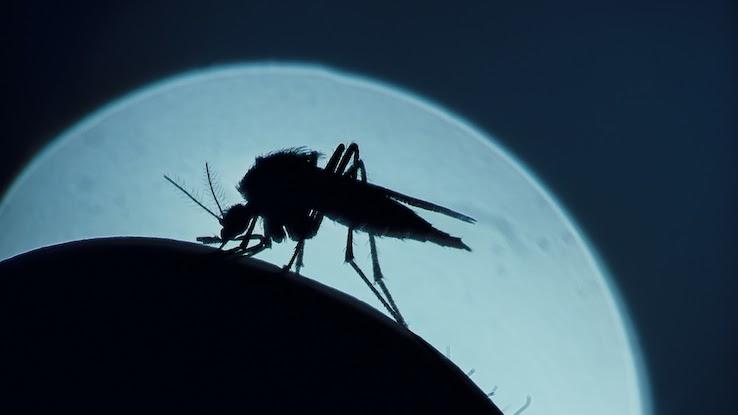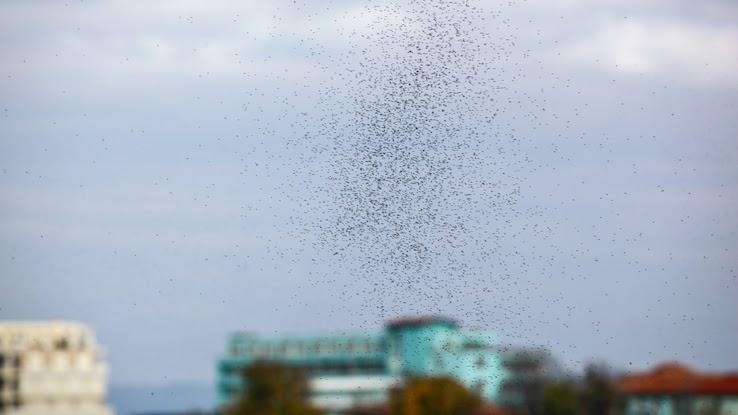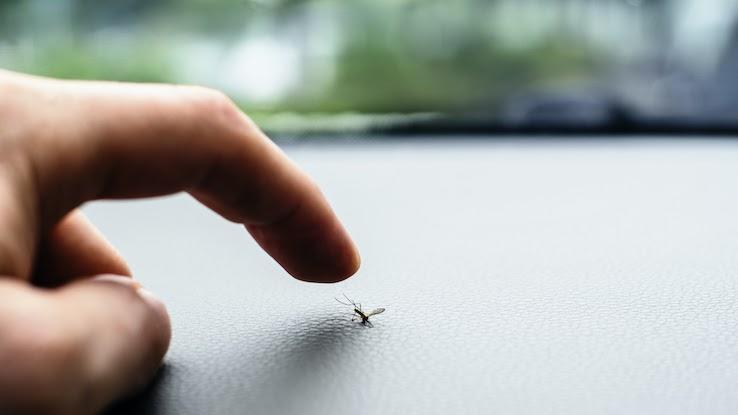Why Are Thousands of Genetically Engineered Mosquitoes Taking Florida by Storm?

In the middle of May of 2021, thousands of mosquito eggs hatched in the Florida Keys. They weren’t just any old mosquitoes, though; these perennial pests aren’t the summertime nuisances — and disease vectors — we know their siblings to be. Instead, the Floridian hatchlings were genetically modified as part of a federally approved experiment to test whether specific types of genetic engineering in insects can work better than insecticides to control populations of disease-carrying mosquitoes — and subsequently lower disease transmission rates. Florida residents haven’t been too keen on the experiment though, as the thought of thousands of new mosquitoes in the area, regardless of how helpful they could be, is still an unpleasant one. But these Frankenbugs may hold an interesting key to improving public health. World Mosquito Day is on the horizon. What better time to take a closer look at one of the strangest cases in the insect kingdom?
Why Were These Mosquitoes Genetically Modified?

Dangerous and potentially deadly diseases carried by mosquitoes, such as Zika, yellow fever, chikungunya and dengue, have become more and more common in Florida in recent years. In an effort to slow the spread of these harmful pathogens, biotechnology firm Oxitec devised a potential solution to eliminate a specific species of disease-carrying, invasive mosquitoes called Aedes aegypti. The solution involves genetically modifying males in the Aedes aegypti species to reduce disease transmission. The company left around 12,000 mosquito eggs in the Florida Keys in late April, and these genetically altered mosquitoes began to hatch in mid-May 2021.
The U.S. Food and Drug Administration (FDA) approved Oxitec’s proposal for this field test in 2016, a process that involved overcoming numerous regulations to ensure the safety of the experiment. In 2020, the Environmental Protection Agency (EPA) gave the final authorization for Oxitec’s project, another difficult feat in the face of what Scientific American calls “significant regulatory hurdles.”
Before this, the primary way to control this harmful mosquito species was through the use of insecticides. However, that method hasn’t been entirely effective in eliminating the problem, as mosquitoes have evolved resistance to the insecticides, which raised the need to find an alternative approach. This has become an even more pressing issue in the wake of widespread climate change, as the habitat of Aedes aegypti is getting larger as areas begin to warm up. It isn’t only Florida that this species of mosquito inhabits anymore; it’s present in nearly half of all U.S. states.
Scientists will be closely monitoring the success of Oxitec’s pilot experiment to determine if the company will be able to release 20 million more genetically modified mosquito eggs later in 2021 when Florida’s mosquito season accelerates. If it does prove successful, the use of genetically engineered organisms in the wild could become less controversial than it has been.
One limitation Oxitec has noted in its current Florida experiment with genetically modified mosquitoes is that there’s still another species of mosquito transmitting diseases in the state: Aedes albopictus. Because this recent genetic technology only targets one species — Aedes aegypti — even if the testing is successful, the other species will maintain its ability to spread disease. In other words, this project solves part of the problem rather than the whole problem. But it could also lead to solutions that address the problem as a whole.
How Does Genetic Modification Eliminate the Mosquitoes?

In this experiment, Oxitec genetically altered male Aedes aegypti mosquitoes to carry a lethal gene that causes their female descendants to rely on a specific antibiotic to live. They won’t receive that antibiotic in the wild, so they’ll die within their early larval stages instead of reaching adulthood. Within a few generations, the female Aedes aegypti population will diminish to a point that the entire population is suppressed.
Furthermore, the modified male mosquitoes pass the altered gene to their male offspring. Those male offspring will continue the process as they mate, which will further limit the female population by ensuring future female offspring are also unable to survive.
It’s important to note that male Aedes aegypti mosquitoes don’t bite and thus don’t pass diseases to humans. As a result, releasing thousands or even millions of them out into the wild won’t cause mosquito-borne disease rates to spike.
Mosquito Engineering Is Becoming Increasingly Common

Before the pilot field trial of releasing genetically engineered Aedes aegypti into the southern Florida wild, Oxitec had already begun testing similar technology in other places around the world. For example, when a similar experiment was conducted in South America, results deemed it an effective method for controlling the population of Aedes aegypti in Brazil. What’s more, Oxitec’s technology has led to the suppression of over 90% of Aedes aegypti populations following several other releases in various countries.
As more locations around the globe become affected by this species of disease-carrying mosquito due to climate change, demand for Oxitec’s technology has risen. The company has been granted approvals to release genetically modified Aedes aegypti in Panama and the Cayman Islands as well. Trials are currently underway in India. Additionally, other companies with similar technology have released genetically altered mosquitoes in Australia and Malaysia.
The effectiveness of the previous field tests means that this procedure is also likely to be effective in Florida. If it does work, the idea is that mosquito-borne diseases will significantly decline in the state.
Is It Ethical to Genetically Modify Mosquitoes?

Some Florida Keys residents, the Florida Keys Environmental Coalition and the Center for Food Safety have expressed strong opposition to the trial’s use of genetically modified mosquitoes. Part of the concern has arisen due to the novelty of this technology. People in the area and local organizations don’t yet have the confidence that this is a safe way to control the spread of diseases from this species of mosquito, simply because the process is so new. Also, residents who are unsure how the technology works worry about the nuisance and disease risk of additional mosquitoes on the loose around them.
There’s additional concern about the environmental impact of releasing genetically modified organisms into the wild. One misconception is that this technology could wipe out all mosquitoes and seriously disrupt local ecosystems by removing a food source for bats, birds, reptiles and other creatures that snack on mosquitoes. However, there are over 3,500 known mosquito species on Earth. Oxitec’s technology, if it works, will only limit dangerous, disease-transmitting species in Florida, with the ultimate goal of preventing the spread of those often deadly diseases to humans.
Another interesting point to understand is that Aedes aegypti has no key role in southern Florida’s ecosystem. It’s an invasive species, so it’s unlikely that getting rid of it will harm the environment.
As the experiment unfolds, scientists are collecting data assessing the impact of releasing genetically modified mosquitoes on the overall Aedes aegypti population and the local ecosystem. That information could potentially help the community feel more confident about the use of genetically engineered insects and about this type of effort’s benefits over widespread insecticide use.
Currently, the insecticides used to control Aedes aegypti have the unfortunate side effect of also killing honeybees, dragonflies, ladybugs and other beneficial insects. If it turns out to be effective, using a genetically modified mosquito to control the population of dangerous mosquitoes will improve area ecosystems — and our environment at large.





